
Dark season 2, episode 3, Ghosts, follows some of Winden’s living ghosts across two time periods, 1954 and 1987. As a police officer, Egon has dealings with the missing who are still alive: Helge, Ulrich and Mikkel. He’s a dying man who is trying to solve a mystery while he still has time. Claudia, the white devil-witch, is trying to save her daughter and her father, and in doing so sacrifices her own life.
Death magic is powerful magic, which Adam, who orders Claudia’s death, surely knows. But I don’t think he understands the difference between taking another’s life in order to achieve the murderer’s goals and a willing sacrifice of one’s own life for the sake of love. There’s a reason Claudia remains above ground at the end of the episode and Adam is buried deep in the underworld.
Adam’s long-term accomplices, Helge and Noah, grow more conflicted about the time war. We learn that Agnes is Noah’s sister and has been on both sides of the war, most recently siding with Claudia. In Ghosts, Claudia asks for a huge favor From Agnes, which will surely take an emotional toll. Agnes is somewhat of a ghost herself, since she usually projects the Femme Fatale image and keeps her true self in hiding.

Recap
Noah straps Young Helge in the killer time travel chair, which has seen some improvements since Cycle 1. Helge is in the clothing he was wearing when he and Jonas touched hands at the end of season 1, episode 10, Alpha and Omega, but time has passed and he’s grown taller, so it’s a tight fit. Helge looks terrified of the chair. As Noah buckles and tightens the straps, he speaks to Helge:
“I’ve seen you grow up. Become a man. The whole cycle of your life. Time chose you. God chose you. Don’t forget that we are your home now, too. No harm will come to you. We’re watching over you. Time is always with you, wherever you go. [Noah takes out a vial of Cesium 137, just like the ones used in the small time travel machine, and slots it into a compartment in the back of the chair.] You carry it within you. And it carries you. It sees and hears everything that you do and say. Tick, tock.”
Helge: “Tick tock”
Noah pulls a lever of the back of the machine which closes a pair of large metal gates, enclosing Helge and the chair in a metal shell.
Helge lives a long life, so this must be the version of the chair that works.
After the opening credits, Doris Tiedemann is lying flat on her back on her bed. Agnes is on the floor, with her head under Doris’ skirt. After a moment of struggling to stay quiet, Doris takes a couple of deep breaths, then giggles. Agnes pops her head up.
You do the math.
They are still in that position when Claudia opens the door. Oops. Claudia is good at math.
They thought she’d already left for the store, but she forgot the milk money. She starts to awkwardly inch away from the door, but Agnes stops her, giving Claudia some extra cash and telling her to buy herself something special for herself.
Once Claudia leaves, Doris worries that Claudia figured out what they were doing. Agnes tells her not to worry, because every family is hiding something. Agnes gets ready to run some errands. Before she goes, she kisses Doris goodbye and tells her she’s beautiful. After she leaves, Doris sits on the floor and giggles some more.
That’s probably more romance than Egon ever showed her.
June 23, 1954 Four days until the apocalypse.
Helge walks in the front door of the Doppler mansion. Greta floats downstairs to him, as disciplined and poised as ever. Then she falls to her knees and touches him all over to make sure he’s real.
She quotes a Bible verse, but doesn’t say anything directly to Helge, other than his name: “And if we know that He listens to what we ask for, we can be sure that we have what we’ve asked of Him. Nothing is lost from His Sight. He returns all things.” Helge, whose face showed light scarring from Ulrich’s attack before he went through the time machine, now has bubbly scars covering the left side of his face, ear and neck. He doesn’t speak or react to his mother.
At the police station, Daniel Kahnwald muses about Ulrich, who hasn’t revealed his identity or said much of anything. Kahnwald wonders what kind of man Ulrich is, since no one has come searching for him. He thinks Ulrich must live like a ghost.
Egon is distracted from the conversation by his marital problems. He asks Daniel if he and his wife still have sex, only he can’t get any words out to ask directly. Daniel is amused that Egon is such a prude and that he and Doris aren’t having sex at all. He explains to Egon that marriage isn’t the happily ever after the stories say it is. The wife gets wrapped up in the kids, so the husband needs to look somewhere else for sexual satisfaction. This is the natural order of things, according to the Winden police chief.
It never occurs to Daniel that his wife might be getting something on the side, too, and from someone who knows what they’re doing. The way Doris is.
Before Daniel can advise Egon on where to “pluck” the “tender young buds” he suggests Egon sleep with instead of his wife, another officer throws open the door to anoounce that Helge has been found. He found himself, to be precise.
Daniel is so creepy. You know he’s hitting on the babysitters when he drives them home. Who would have thought that Egon would be the best, most honorable cop in town?
Claudia and Tronte walk through the woods alone, near the caves. She complains that her mother doesn’t think she understands anything. She asks Tronte what his life was like before he came to Winden. He says, “My mom was sad all the time. I lived in a home… My mom has a brother, but I think they hate each other.” Claudia asks if he thinks Agnes is happy in Winden. Tronte shrugs his shoulders.
Then Claudia looks around to make sure they’re completely alone, and asks Tronte if now is okay. He pulls down his pants and shows her what’s beneath his underwear. She looks, but doesn’t react, touch him or remove any of her own clothing.
In 1987, adult Claudia contemplates the time machine while Regina gets ready for school. Remembering that her older self said that her time with Regina would be short, she asks Regina to spend the day together. Regina has plans. After her daughter leaves, Claudia recalls that Helge gave her the book A Journey Through Time.
Egon has tracked down the song with the lyrics Ulrich likes to quote at him: “My only aim is to take many lives, the more the better I feel.” The song is Pleasure to Kill, by the German thrash metal band Kreator, from their album Pleasure to Kill.
In 1954, Adult Egon arrives at the Doppler mansion to question Helge about his disappearance. Greta reluctantly lets him in, but explains that Helge hasn’t spoken since his return. Helge doesn’t speak to Egon either, despite Greta’s impatience with him.
In 1987, Claudia visits Helge in the institution. He’s not the engaged, alert adult Helge we saw in season 1. That’s even more obvious than it was during Egon’s visit. He may be on heavy duty meds, like antipsychotics, which are dulling his mind or he may have experienced a breakdown after his car accident which left him this way.
Claudia shows Helge the Clockmaker’s book and asks why he wanted her to have it. He says that he thought she might be one of the few people who’s able to understand him. Then he repeats Noah’s prayer: “Time is always with you, wherever you go. You carry it within, and it carries you. It sees and hears everything you do and say.”
Claudia doesn’t understand, so Helge explains that Noah said that there’s a struggle between good and evil, light and dark. The travelers can help undo everything. If they’re sucessful, none of the bad things they did will have happened. Claudia is even more confused now, asking again about Noah. Helge clutches her arm and begs her to never trust the priest.
Noah emerges from his church, ready to start his next bad thing mission.
Agnes meets Elderly Claudia in the bunker. Claudia makes sure that Agnes wasn’t seen, then tells her that Helge and Noah returned to 1954 today. Agnes says that she’s not afraid of Noah anymore. Claudia reminds her that they “carry the same blood” and that our lives are shaped by family. Agnes reminds Claudia that she told Agnes that true freedom is gained by denying one’s family.
Then Claudia gets to the real business of the meeting. Sic Mundus is preparing the next cycle. It will begin in four days. Noah is a fool who causes suffering in many others, but it will come to an end. Claudia needs Agnes to give her something. She hands her a crumpled up piece of newspaper.
Agnes’ asks if it has to be today. Claudia nods yes, and tells Agnes that she wants to thank her for everything. Then she says that Doris loves Agnes and will make Agnes very happy if she’ll let her. They hug each other tight.
Adult Claudia visits the Clockmaker for the first time. It’s the elderly version of Tannhaus, so it’s 1987. She shows him A Journey Through time and asks if he’s the author. Because of her heterochromia, he recognizes that she’s the younger version of the woman who gave him the book and the time machine when he was young. He tells Claudia that they are together in an endless cycle.
[When he is young, she is old and gives him the book to rewrite and publish, and the time machine designs for him to build. When he is old, Jonas brings the finished, but broken, time machine to be repaired, explains the time machine to him so that he can finish it, and tells him that everything in the book is true. Then Tannhaus can explain both to Claudia with authority when he gives her younger self back the time machine. Since the Clockmaker couldn’t build the machine or explain it to Claudia without him, Jonas is an essential part of this cycle. He is the heart and soul/savior/teacher/Logos/word. The Clockmaker does the mechanical/physical aspects of creation, based on Claudia’s intelligent designs/wisdom/Sophia. They are still a trinity.]
Egon reports to Daniel that Helge wouldn’t talk, so he doesn’t have any new information from his visit. But Egon is wondering if the dead boys and Helge’s disappearance are really connected after all, since they’ve had Ulrich locked up for months. He couldn’t have been taking care of a child, and Helge looks well taken care of.
Daniel decides that Ulrich must have had an accomplice and sends Egon to question him again.
In 1987, Egon takes the Kreator album to Old Ulrich and asks how he knew the lyrics to a song that wouldn’t be written for decades. Ulrich silently looks at the album cover. Then Egon asks why Ulrich wanted to kill the boys, when he said he had a son himself. Ulrich explains that he didn’t kill the two boys they found at the power plant. He was trying to save them.
Next Egon asks how Ulrich knew he had cancer and who the white devil is. Ulrich laughs at the white devil name. Every member of Jonas’ family has laughed at the mention of anything that might be satanic, just as Jonas did that first time.
Then Egon asks what Ulrich’s name is and Ulrich answers, “Ulrich Nielsen. And I come from the future.”

Tannhaus explains to Claudia that he’s involved in a bootstrap paradox.
“In a bootstrap paradox, an object or any information from the future is sent back to the past. This in turn, creates an infinite cycle in which the artifact doesn’t have a real origin any more. It exists without ever having been created. To put it simply, this book has traveled back through time. It found me before I before I even wrote it. It’s all a matter of origin. Where is the beginning? When is the beginning? Is there a beginning at all? The world is full of such paradoxes. We simply choose to ignore them, most of the time.”
As Tannhaus finishes speaking, 1954 Egon is shown into the asylum where Ulrich is being held in a straightjacket and isolation. He’s so heavily medicated that he’s practically drooling. Welcome to mental health care in the 1950s.
The guard tells Egon not to expect much, because Ulrich barely speaks. Egon tells Ulrich that Helge has returned home and asks where Ulrich took him last year. He encourages Ulrich to talk, since it could improve his situation. But Egon leaves within a minute, without giving Ulrich time to gather himself together. By the time Ulrich manages to say his own name, Egon and the guard are gone.
In 1987, Old Egon sits at his kitchen table looking through his files. He comes across Mikkel’s file and notices that the boy said his father was Ulrich Niesen when Egon found him in his office the first time.
Tannhaus tells Claudia that he knows she’s there to find out how the time machine works, because the older version of her told him that her younger self would eventually show up asking for help. He wouldn’t have been able to help her until last year, when another time traveler explained it to him. He’s certain that Older Claudia knew exactly how all of this would all go.
In 1954, Greta is still campaigning for Mother of the Year:
“I find him creepy. As if he were empty inside now, merely a husk. He never was the brightest child, but now you would think he was stupid. He frightens me. And with Bernd gone, I don’t know how to handle the situation. Perhaps he’s possessed by the devil. Please look at him and tell me everything is alright with him.”
Any excuse to get Father Noah back into the house and make another pass at him.
Father Noah confirms that Helge still isn’t speaking. Greta calls Helge downstairs. When Helge sees Noah, he throws himself into Noah’s arms. Noah embraces him, but has a strange look on his face.
Maybe he’s still upset about what the time machine did to Helge’s face or maybe he doesn’t want to be any more deeply involved with Greta. Maybe he’s worried that Helge will let slip that they’ve spent the last 7 months together, or someone will figure it out.
Noah bends down and repeats the time prayer to Helge.
“Time is always with you, wherever you go. You carry it within you. And it carries you. It sees and hears everything you do and say.”
Greta nods along with the prayer. Sometimes I’m not sure if Noah’s time speech is a prayer or a mind control tool that activates a posthypnotic suggestion. The way Noah also used a gesture as he spoke directly at Helge’s face argues that there could be more involved than a simple soothing chant. Tick tock.
Noah stands up and suggests that Helge read from the Bible so that Greta will feel beter about how he’s doing. He hands Helge his Bible and points at a particular verse, which Helge easily reads aloud: “You are my shield, my protection, I hope for your word.”
Greta is amazed. Noah suggests that she give Helge time. “I’m sure he’s just choosing his words with great care.”
I’m sure he is.
He tells Helge to keep the Bible. Greta asks Noah to stay awhile. Noah already has one foot out the door, but he makes the effort to stare deeply into her eyes and take both of her hands in his. “He has returned to his mother’s bosom. He is a miracle. Never forget that.”
While he’s speaking, Noah puts Helge’s hands on top of Greta’s, then gently removes his own from the pile before he leaves. Greta’s eyes follow him as he goes.
Still betting he’s Helge’s father. But he’s not as committed to being a smooth talker as he was in Cycle 1. Something happened to his faith when the new cycle started. He slips the phrase “never forget” into conversation frequently, as if he’s saying it to himself. It’s his own secret message. Or maybe it’s another posthypnotic suggestion. Father Noah has become much more mysterious this season.
1987 Egon visits Ines to ask about Mikkel. She insists that Michael wants to put the past behind him and is sleeping anyway. She tells Egon that he has a new life and doesn’t speak of his old life at all. She’s clearly lying to keep Egon away from Mikkel so that he won’t be taken away from her. When Egon asks if Michael has ever mentioned a white devil, Ines is the first person who doesn’t react with amusement. She emphatically tells him no and changes the subject.
She could be taking the devil question more seriously because she’s supposed to be religious. She did ask Noah to speak to Mikkel after all. Or she could be deflecting the question because she knows who the White Devil is. She did ask Noah to speak to Mikkel after all.
Ines reluctantly agrees to let Egon speak to Michael tomorrow. On his way out, he notices a box of sleeping pills on the counter. She snatches them from him and claims they’re hers, because she has nightmares. Egon asks her for a photo of Mikkel for his file. Ines gives him one, after confirming that it’s just for the file.
In 1954, Noah finds Agnes waiting for him in the church sanctuary. He throws accusations at her as if they’re already in the middle of an argument. They probably are. He tells her that she’s already chosen to side with Claudia, so it’s too late for her. Adam won’t take her back and there’s no salvation for her.
Agnes tells Noah that she knows where the missing final pages of the triquetra diary are and she knows that Adam has been looking for them for a long time. She thinks he’ll do whatever it takes to get them back. Noah doesn’t believe that Claudia would have told Agnes where the pages are. Agnes says that Claudia has the pages with her and hands Noah the newspaper clipping.
She tells Noah that she wants to come back to Sic Mundus in return for this information, and she wants it to be before the next cycle begins. Noah is shocked that Agnes would forsake Claudia. She tells him to consider it a peace offering.
Old Claudia visits 1954 Egon to say goodbye, without telling him who she is. She says, “You’re much too good a person, like you have always been.” Then she asks for his forgiveness. She’s sorry things happened the way they happened, but sometimes the good ones get hit the hardest. He’ll understand someday.
Egon feels instant affection for her, because her mismatched eyes remind him of his daughter’s, but the things she says confuse and unsettle him. He asks her to leave before he has her taken away.
1987 Claudia, still carrying the time travel suitcase, stops by her office at the power plant. Her secretary goes over all of the appointments she’s had to reschedule, then says that Egon is waiting in Claudia’s office. Claudia is angry with him for showing up unannounced, so he blurts out that he has cancer. He’s been trying to tell her, but she’s been too busy and the cancer is spreading, so he couldn’t wait. She hugs him as he walks toward the door to leave.
1954 Egon brings home a bouquet of flowers, but the only one there is young Claudia. He affectionately calls her his Princess Know It All. He tells her that he thinks he met a witch. Claudia doesn’t believe him.
She asks if the flowers are for her mother. When he says they are, she replies, “You’re much too good a person, Papa. The world doesn’t deserve you.” It echoes what the older version of his daughter said to him that afternoon. He tells her that he’s just had deja vu.
Old Egon visits Ulrich in the asylum. He says that he used to think that the worst thing that could happen would be for a parent to lose their child, but he’s learned that parents and children are fated to lose each other. Their paths only overlap for a small portion of time, no matter how closely you try to hold onto each other.
Egon tells Ulrich that last winter a boy arrived in Winden and asks if Ulrich knows him. He shows Ulrich Mikkel’s photo. Ulrich confirms that Mikkel is there, now, then accuses Egon of purposefully keeping this information from him. He attacks Egon and has to be pulled away.
In 1954, Old Claudia visits Young Tannhaus. He apologizes that the time machine isn’t ready yet. She assures him that she wasn’t expecting it, since she knows that it won’t be ready for 33 years. He doesn’t understand the blueprint design for the machine. Claudia hands him her old, tattered copy of A Journey Through Time. He recognizes it as the book Ulrich showed him in Cycle 1 and asks why she’s giving it to him.
She explains that everyone wonders what their journey in life will be. This is his. He can keep it. She’ll be dead soon and no longer needs it. He doesn’t understand. She tells him he will eventually, and then they’ll meet again. After she dies.
He asks how that’s possible. She tells him that time is an illusion. When he sees her next, he’ll have to show her how to operate the time machine. He doesn’t even know what it is, but she says that she won’t tell him how it works, because he told her that someone else explained it to him.
Claudia: “Things take their course the way they always have.”
Tannhaus: “I never told you anything. No one explained anything to me.”
Claudia: “Not now. In the future. This will all be ending soon. Until then, everything must stay as it’s always been.”
She leaves, even though he’s begging her to stay.
She’s partially referring to the current cycle ending and a new cycle beginning, but I think she’s also referring to the time loop cycle breaking and a completely new time cycle beginning.
Montage!
The characters confront their ghosts.
Tannhaus looks at the beat up copy of A Journey Through Time. He’d rather have help from Claudia herself, but she’s like a ghost.
Helge kneels by his bed, with his Bible next to him, and prays. Greta watches her strange child from outside the bedroom door.
1987 Egon contemplates Pleasure to Kill. Ulrich is an enigma to him. At the asylum, Ulrich looks at the photo of Mikkel and out into the distance through his bedroom windows. He’s time traveled the long way this time, but he finally caught up to his son.
1954 Egon comes downstairs in his pajamas. His bed is empty and his wife is sharing an intimate drink with Agnes in the dining room. He’s a detective, he gets what’s going on.
1987 Claudia takes the time machine to the cave where the radioactive barrels are stored and uses it for the first time.
Older Claudia walks in the dark toward Helge’s cabin and the bunker, her base of operations. Noah stops her, and taunts her about the way he thinks Agnes betrayed her. Then he says, “You took everything from me. You’re going to die. And everything you stand for will die with you.”
Claudia: “I know I’m going to die. But am I going to lose this round? Or is this, here, our meeting, you and you gun, only part of a game you still don’t know how to play?”
Noah: “You think you can manipulate me with your words. I’m not one of your pawns anymore.”
Claudia: “But Adam plays you still. The Paradise he’s promised you is nothing but a lie. He’s selling you the illusion of freedom. Ask yourself if you’re really free. If you were, you would have a choice. Do you have a choice?”
Noah thinks for a moment, then shoots her.
Free will or not, he hates her and wants her to die. His choice is always the same, until it doesn’t appear to be a choice anymore. It appears to be unalterable fate. Is it? Or is it the consistency of human nature within an otherwise chaotic universe?
Agnes sits on the edge of Tronte’s bed and watches him sleep. She pulls the newspaper clipping out. It’s a notice that an unidentified woman’s body was found in the woods, with a drawing of Claudia.
Noah searches Claudia’s pockets until he finds the missing pages of the triquetra diary. As he looks through them, he says, “That can’t be. Charlotte? No. That’s not true. That can’t be right.”
Adult Claudia travels to 2020 and stands in the bushes outside of Regina’s house. She watches as a very ill Regina comes outside for some fresh air. When Regina takes off her scarf and reveals that she’s lost her hair, Claudia bursts into tears.
Adam’s voiceover: “No matter how much we fight it, we are connected through our blood. We can feel alienated from our families and not understand their actions. Still, in the end, we would do anything for them. A common thread that connects all of our lives with each other.”
Adam, in his study, as always, asks Noah if Claudia had the missing pages. Noah lies by shaking his head no. Seeing that Noah is distressed and assuming it’s because he killed Claudia, Adam says, “She got exactly what she deserved. In the end, we all get what we deserve.”



Commentary
Adam equates Ariadne’s red thread to the thread of DNA in our blood that connects us to those who come before and after us. But is he right? Would we do anything for our families, no matter what has already happened between us? Adam and Eve’s children, the first brothers in the Bible, Cain and Abel, argued so badly that one murdered the other. Ariadne, herself, betrayed her brother to help her lover. His statement is demonstrably false, using his own metaphors. Adam’s words, as always, don’t really mean what they sound like they mean, and we’ll have to wait to understand them.
What/who did Claudia take from Noah? They want us to think that she stole Tronte and Agnes, but his disagreement with Agnes seems to be based on philosophical/spiritual grounds, which could be overcome. Noah isn’t normally violent. He had to be pushed to the edge to do the dirty work of murdering Claudia himself.
Claudia and Tannhaus both feel this link to each other, even though they are one of the dualites. He’s old while she’s young; she’s universally and theoretically minded while he’s practical and local. I wonder if somewhere along the way, one of them got the time machine working at the right time and they had an affair. I’m getting a sense that he could be Regina’s father.
I keep toying with the idea of Regina as variations of Persephone/Hades/Lucifer. Regina ran a hotel, which maybe was a form of purgatory, until things came to a head in Winden, and now the residents need to be sorted. Her husband runs the power plant, an everlasting fire, and is the caretaker of the God Particle in the present day. Her mother also ran the power plant, then become the leader of one side of a time war. Her son allied himself with the other side of the time war. In many ways, Regina is at the center of everything. She doesn’t seem to be the savior, but all of the Tiedemanns are fighting to save her, like she’s an inverse of a savior- an antiChrist.
I freak out a little (or a lot) 😱😱👻💀💀 every time someone goes near those yellow barrels. Does no one in Germany understand what the radioactive symbol means??
Claudia tells the clockmaker that she’ll die, then meet him again later, after she’s been resurrected as her younger self. For the second episode in a row, she owns her younger self as the same person, and, like Christ, prepares for the death she knows needs to happen. She’s a dying and resurrecting goddess.
She assigns Agnes the task of Judas, and her parting words to Noah, her killer, leave him with something to think about. Agnes’ job must go beyond selling out Claudia. That was just what it took to get her back into the inner circle.
My Current Theory of How Time Works on Dark
Nietzsche’s Eternal Recurrence is described in my S1Ep5 recap.
Adam wanted those last four pages so badly that he was willing to kill and force betrayal for them, but Claudia was willing to turn the pages over to him. I don’t think the pages will do what he wants them to do. Or maybe Adam and Claudia still have the same goal after all.
One thing we can deduce already is that her methods are gentle and subtle, while his methods are violent and cataclysmic. They may both still have the same goal, but the falling out was over how to achieve it. She wants to work slowly, cautiously and scientifically, with as little suffering as possible, while he feels moving quickly will end the overall suffering faster and be better in the long run, even if there is more pain in the short term. In his mind, they are all already dead, so it doesn’t matter what he does to get them to heaven more quickly. In her mind, all times always exist, so all suffering is endless. Since she can’t stop suffering, she should cause as little pain as possible.
It’s possible that both are correct.
Claudia knows that she’s in a time loop/cycle. And unlike anyone else except for maybe Jonas, Adam and Noah, she remembers specifics from previous times around the loop. But everything we’ve seen so far suggests she’s only partially correct about how time works.
She seems to thinks she’s in one, single recurring loop that continuously overwrites itself, with a timestream that’s been predetermined since the beginning of the universe. All of time since the beginning of the universe exists at once as part of the same unbroken line.
That might be what her universe should be, or what it is, and everything I’m about to say is wrong. It wouldn’t be the first, or last, time.
As far as I can tell, what we’re seeing are consecutively occuring, but separate, time loops/cycles that are almost the same, but each has some key differences. Some of the changes are influences from the previous loop. Some are introduced by travelers either on purpose or accidentally.
Each loop/cycle is a separate timeline. Once a loop starts, it becomes a closed, fixed loop and all times and events within the loop exist at once. The old loops each still also exist as as closed, fixed time loops that don’t interact with the new cycle/loop.
They are unchanging and unchangeable. Any changes which affect the loop probably came through from the previous loop before this loop started and only seem to be happening now. The previous loop couldn’t change itself, but it could send powerful vibrations forward to the next loop.
Adam and Sic Mundus are somehow forcing the creation of new cycles/loops. That’s what Claudia meant when she told Agnes that Adam is preparing the next loop/cycle. He’s attempting to get his chess pieces in place in the next loop before this loop spawns it in 4 days and its timeline is fixed.
It’s possible that these vibrations/changes are being amplified with each loop and will eventually shatter the eternally recurring loop system completely. Maybe they (Sic Mundus) are trying to keep as much as possible the same to hold the loops together until they think it’s essentially become a bomb. Then time will self destruct and the Sic Mundus Paradise will be revealed on the other side.
Or maybe they (Claudia) think that the only way to save the world is to calm down the time loops until they settle back into a healthy rhythm, with a properly repeating eternal recurrence that doesn’t need outside help to work. In that case the answer would probably be to help the loop run as smoothly as possible until it can run itself again.
Given that one of Tannhaus’ theories of the universe is Big Crunch, a continuously expanding and contracting universe, I think we should be prepared for complete annihilation and rebirth. I love Claudia and can’t stand Adam, but the slow method clearly isn’t doing it. Maybe Adam is correct and ruthlessness, as a form of mercy killing, is the answer.
It’s a common time travel trope, when a traveler from the future is saving the world, for them to view the people of the past as dead people. Twelve Monkeys, the film and the TV series, especially worked this concept. It’s possible that the people of this reality will need to be sacrificed to bring about the next one, crazy as that sounds. This season’s references from the Book of Revelation can’t be ignored. Maybe Winden will experience the Rapture and most will be Left Behind.
But it’s also true that a surgical strike type of change in the timestream could be all it takes to set things right, and the key is finding the correct variable to change.
My vote goes to the night in 1986 when Ulrich and Katharina tied Regina to the tree.
“You are my shield, my protection, I hope for your word.”
The verse which Helge reads to Noah and Greta seems to be Psalm 119:114, which in the King James version is,”Thou art my hiding place and my shield: I hope in thy word.” Since most modernized versions keep the phrase “hiding place”, I think we can assume the Sic Mundus Standard Bible changed it for a reason, mainly because they were hiding Helge for the last 7 months.
This verse is a reminder that faith in God and adherence to Biblical law, i.e. the prophet, Prophecy and their requirements, are the believer’s protections from sin and evil doers. Should the believers allow themselves to be tempted away from the righteous path of true belief by the cunning of the devil’s minions, they will join the rest of the heretics in the everlasting fire.
Pleasure to Kill: From Ulrich to Adam
Kreator’s album Pleasure to Kill was released in the spring of 1986 and was considered a critical and commercial success at the time, since it allowed the band to break out of the cult status it had previously reached. It’s considered a classic, influential album that was a forerunner of several different extreme metal subgenres.
From a 2017 Loudwire review:
“To date, Pleasure to Kill’s title track remains one of the best and most vicious examples of German thrash and the ferocity with which Petrozza attacked his instrument throughout the record paved the way for the nascent death metal scene… When Petrozza was writing the lyrics for Pleasure to Kill he was influenced by slasher films and the grizzly faux-documentary Faces of Death and that he wanted the album to address different ways to die.”
Ulrich had good taste, for an extreme metal fan, and was aware of music that was underneath the general public’s radar.
A remastered version of the album was released in the spring of 2017, months before season 1 of Dark was released. The rerelease was even more successful than the original release had been. 31 years after its release, the album Pleasure to Kill charted for the first time, peaking at #99. The album is on its own 30+ year cycle.
In Cycle 1, Egon used the album as evidence that Ulrich was part of a Satanic cult who were kidnapping and killing children. Now that we know about Sic Mundus, we know that he wasn’t as far off from the truth as it seemed at the time. Cycle 2 Egon is more thoughtful and willing to look beneath the surface of situations. He also has time, since he’s retired.
But he’s over whatever grudge he held against Ulrich, too, and looking at him with clear eyes. He can see that underneath it all, Ulrich is a boy/man fighting to be heard, someone with so much pent up anger and distress that only talk of extreme violence and death feels like enough of a release.
This Egon goes to Ulrich with the album and talks to him like a human being, then waits patiently for answers, something Egon never did in Cycle 1. That’s what Ulrich needed in order to defuse his defiance, so Egon gets his answers. For once in their lives, they meet on relatively even footing, since they think they’re discussing events of the past that won’t affect the present.
The quote itself, “My only aim is to take many lives, the more the better I feel,” is fascinating within the context of Dark, when you consider how central Ulrich is to the storylines, the time periods and the four families. He’s harassed Regina, been Charlotte’s police partner and had an affair with Hannah, giving him strong ties to all four families.
He’s one of the few people to have the perspective that living life backwards gives you. He may have only time traveled once, but it means that he left the 2nd 33 year period as it was ending and went to the first 33 year period. He’s watched that history unfold, knowing what those events would lead to in the long run. He understands cause and effect in a way that few do, other than Claudia. They both also match the physical description of a white devil. And he’s experienced extreme loss.
But Claudia has had agency and independence throughout her time of awareness, while Ulrich has been a prisoner. He’s learned to outwardly show calm, but he’s been angry for 66 years. He still knew the quote and recognized the album without a moments’ hesitation. The song still speaks to him.
Ulrich is the example of how art can be used to express and defuse feelings that are to big and too difficult to express verbally or in any other healthy way. His feelings are universal and don’t make him a psychopath. Being drawn to extreme art doesn’t mean he’d eventually try the same thing in real life. The art works as a way to release pressure so that real violence isn’t necessary. Ulrich only went after Helge because he was in a situation where he thought hurting one child would save multiple children, so it was the lesser of two evils.
An actual psychopath would turn to violence such as starting fires ot torturing animals, no matter what kind of environment they’re raised in or what their life experiences were. As a species, we’re predators. We don’t need to be taught how to kill. Violent psychopaths don’t need to be taught how to kill other people.
Ulrich was listening to songs and pulling particularly vicious pranks as a teenager. Ulrich, Katharina and Hannah all engaged in the vicious pranks, but somehow no one remembers what Katharina and Ulrich did to Regina, only what Hannah did to Ulrich. Both Ulrich and Katharina harassed Regina to the point where she didn’t feel safe walking home alone anymore, and had Mads walk with her. Another time, Aleksander had to pull a gun on them before they’d back off.
Yet they all grew up to be reasonably responsible, moral adults. Cheating on a spouse isn’t a violent crime and it isn’t unusual. I don’t think Ulrich has anything to do with the child murders, other than trying to stop Helge. His problem was, as Clausen said, he only saw part of the elephant.
That brings me back around to Sic Mundus and their disturbing lack of empathy for other people. They are methodically killing children and leaving the bodies in the open to be found, but not where the families will be able to get closure. It’s like they want to hurt as many people as possible with each murder. They don’t just test the time machine, then bury the bodies in a hidden location, the way you would if there were no other choice.
These are the actions of a psychopath who enjoys killing and sadistically enjoys watching the results of his work. Who likes watching the detectives work across all three time periods, leaving them clues but not enough to solve the case. “Winning” makes him feel smarter and better than everyone else.
“My only aim is to take many lives, the more the better I feel.”
With each cycle, more people keep dying. Whoever Adam is, underneath the scars, he enjoys the killing. Maybe he also believes in the Prophecy or maybe he’s stopped believing in anything other than sadism and nihilism. For Adam, this song isn’t art that’s meant to blow off steam. It’s aspirational.
That doesn’t mean the rest of Sic Mundus thinks the same way. That’s the point of the Prophecy. Psychopaths are fantastic liars. They get off on it. The Prophecy gives followers something to believe in and a reason for their actions, allowing them to justify doing things they would normally never consider. It’s typical cult behavior.
Adam could be anyone, maybe not even originally a biological man. We’ve been given the example of Benni, a male to female transgender person, and Regina, a woman who’s most likely had a double mastectomy and is now on hormone therapy. Two individuals who are androgynous in their physical sexual presentation. (I’m strictly speaking of physical bodies.) Adam wears a pseudo formal military uniform that covers everything except his bald head and his hands. Even his neck is normally covered.
With his scarring, we actually don’t have any way of knowing what he started out looking like. We have no idea what injuries or surgeries he’s had. In some ways he presents as male, but in others, his presentation could be seen as androgynous, such as his hairlessness and his choice of a pseudo military uniform. There isn’t really any reason why a military leader has to be a man, we just tend to make that assumption. “Adam” could be Regina, or anyone else, in disguise, taking advantage of that fact.


The Fall of the Damned is the painting on the wall in Adam’s study. There are some great theories about the painting on Reddit, but they’re spoilery for this point in the season.
Note the similarities in theme, color, light and shadow between the two images. It’s especially noticeable if you look at them from a distance or let your eyes blur, so you don’t see detail anymore. Both have a pile of bodies at the bottom in the darkness, a grey white center with the fallen, and smoky streaks of grayish, blackish red climbing to the top of the image. Both have a righteous victor dispatching the fallen to their hellish fate below.
In the Book of Revelation, the Archangel Michael leads God’s army against Satan and the forces of evil. The scene in the Rubens painting takes place after Satan is defeated. Michael is usually pictured with a sword.
In the Kreator image, it appears the tables have been turned and Satan has won the battle. Or maybe this is what’s happening down in the Underworld as the fallen are arriving. Satan is rallying the troops and planning his next move.
I don’t know if this similarity is on purpose or if it’s just one of those wonderful coincidences when everyone on a production is so in tune with each other that it looks like everything is planned. But the thematic similarity can’t be denied, and on a film set, very little is an accident.
The Sic Mundus Prophecy, Noah’s Time Prayer and Greta’s Bible Quote
John 5:15: “And if we know that He listens to what we ask for, we can be sure that we have what we’ve asked of Him.”
Greta quotes John 5:15 when Helge returns. It means that God always hears the prayers of believers, though he answers them in his own time and in the way he finds best, not necessarily in the way that was asked for. It’s God’s loophole. Helge returns, but he returns after 7 months, with a scarred face and head, traumatized and changed in other ways.
The 2nd half of what she says, “Nothing is lost from His sight. He returns all things,” doesn’t correspond to any specific bible verse that I can find, but it sounds like it was influenced by several. Sic Mundus has twisted the sacred text so that it says what they need it to about their time prophecy.
We know that Sic Mundus has taught its followers that there is a prophecy which will save them. They believe in it so strongly that Elisabeth is willing to stay in the post apocalyptic future to fiercely guard the God Particle and make sure that the future portion of the loop continues according to plan.
We also know that Noah has a church and Greta seems to be one of his followers, judging from the way she hangs on his every word. There are Bible verses which could already fit Greta and Helge’s situation and the Sic Mundus prophecy, if you insert a world view of time loops which will eventually lead to Paradise:
Romans 11:36– “For of him; and through him, and unto him, are all things.”
Ecclesiastes 12:7: “Then shall the dust return to the earth as it was: and the spirit shall return to God who gave it.”
Both of these verses have the sense of leaving and returning, of time and matter looping, though they speak of leaving and returning to God, rather than to people, as Greta does. The prophecy turns the Bible on its head, putting humanity at the center, rather than God, since it was written for the followers of Sic Mundus, who are rebelling against the normal ways of reality and culture.
There is also the element of sight in Greta’s words, “Nothing is lost from His sight.” A prophecy has to be spoken by a prophet. Christianity has Jesus and John the Baptist, Judaism has Elijah, Moses and others. Sic Mundus has Adam, perhaps Noah. Maybe Claudia was one of the prophets at the beginning. The prophet is one aspect of God, who watches the followers. When God/the prophet isn’t with the followers, they watch for their prophet to return. Down in the bunker, Noah told Helge that he’d watched him grow up already.
The Biblical prophecy concerning Elijah predicts the reconciliation of parents and children. The separation of families is a major theme in Dark, including the separation of Helge from his parents, Mikkel from Ulrich and Katharina and now the emotional diatance between Claudia and both Egon and Regina. Bernd is away from home in this episode and still hasn’t been reunited with his beloved son:
Malachi 4:5-6 offers an intriguing prophecy: “See, I will send you the prophet Elijah before that great and dreadful day of the Lord comes. He will turn the hearts of the fathers to their children, and the hearts of the children to their fathers; or else I will come and strike the land with a curse.” To this day, Jewish Seders include an empty chair at the table in anticipation that Elijah will return to herald the Messiah in fulfillment of Malachi’s word. According to Malachi 4:6, the reason for Elijah’s return will be to “turn the hearts” of fathers and their children to each other. In other words, the goal would be reconciliation.
Hebrews 4:13: “Nothing in all creation is hidden from God’s sight. Everything is uncovered and laid bare before the eyes of him to whom we must give account.”
This is an entire page of Bible verses discussing the signs to watch for which will signal Jesus’ return, people gazing into heaven to watch him come and go, and the manner in which he’ll return. In a sense, Jesus rides a time loop, too, since all sorts of things will eventually be restored to their former glory. Nothing is lost. Everything will be returned.
These are two of my favorite passages in relation to Dark. In Acts 1:9-11, Jesus ascends and his followers stand there dumbstruck for a while, until someone tells them to move along. Since he leaves in a cloud, it would be easy for Sic Mundus to reimagine that as the God Particle.
Acts 1:9-11: “(9)After He had said this, they watched as He was taken up, and a cloud hid Him from their sight. (10) They were looking intently into the sky as He was going, when suddenly two men dressed in white stood beside them. (11) “Men of Galilee,” they said, “why do you stand here looking into the sky? This same Jesus, who has been taken from you into heaven, will come back in the same way you have seen Him go into heaven.”
Luke 21:25-28: “(25) And there shall be signs in the sun, and in the moon, and in the stars; and upon the earth distress of nations, with perplexity; the sea and the waves roaring; (26) Men’s hearts failing them for fear, and for looking after those things which are coming on the earth: for the powers of heaven shall be shaken. (27) And then shall they see the Son of man coming in a cloud with power and great glory. (28) And when these things begin to come to pass, then look up, and lift up your heads; for your redemption draweth nigh.”
Jesus also travels by way of cloud in Luke, after there are astrological signs like the ones in the Clockmaker’s 33 year cycle. In both excerpts, the Christians are told to look up and watch for the Savior’s return.
Words and phrases that have to do with seeing, watching and returning are commonly used by Noah and might be Sic Mundus code.
We don’t know who wrote the Sic Mundus prophecy, whether it was one person, or a committee. We do know that all parties agree that the war is between Claudia and Adam, the original goddess and the upstart god. We also don’t know if the prophecy was written as one thing, for example Claudia’s instructions for time travel, and has now been rewritten into something else.
In Cycle 1, Noah told Helge that the time machine would be their Ark at the end of the world and they’d use it to save humanity and remake the world into the image they desired. That sounds like the intention at that time was to perfect the machine, then send the believers back to a certain time and place to form a colony of believers who would influence events in order to change history. Sort of like Sic Mundus and what they’re doing in Cycle 2.
That would make Cycle 1 the Old Testament period and Cycle 2 the New Testament period. Cycle 3 will be The Book of Revelation, with the return of the Savior, everyone that was lost, the four horsemen of the apocalypse and some other fun stuff. Good times are ahead.
Older Claudia tells the Clockmaker that she’ll die, and then he’ll meet her again later, after she’s been resurrected as her younger self. For the second episode in a row, she owns her younger self as the same person, and, like Christ, prepares for the death she knows needs to happen. She’s a dying and resurrecting goddess. She doesn’t fight Noah, her Judas, but she does leave him with something to think about.
Could Sic Mundus be tracing the movements of Claudia, Jonas and Noah, the 3 long-term time travelers, and be watching for them to appear in certain forms at certain times and places, and perform certain actions, to herald the beginning of the next Cycle and the status of their prophecy? If everything goes as predicted and the time travelers do what they’re supposed to do, the cycle will play out and bring the expected result. If there’s too much variation they’ll miss the signs and won’t complete the Prophecy.
So the Clockmaker would be watching for Adult Claudia to return, and watching for Adult Jonas to teach him how to use the time machine. Perhaps Helge’s disappearance and return are part of the prophecy. The Clockmaker is cagey, like a spy, and never really lets on what and who he knows or whose side he’s on. If it weren’t for the photo of Sic Mundus and the books on Hermeticism, we’d have no idea that he has ties to Sic Mundus.
Have we seen a teen version of him without realizing it?
His book, A Journey Through Time, is another candidate for the origin of the prophecy. The prophecy could have started out as a simplified explanation of what’s in his book and how it related to Winden. Though he’s an old hermit, he’s had a steady stream of important visitors, the way a prophet might.
Noah time speech to Helge reads like the combination of a prayer and a send off pep talk for a departing missionary. When he repeated part of it at Helge’s home, Greta responded as if she already knew it, even nodded along, and it comforted her as well.
“I’ve seen you grow up. Become a man. The whole cycle of your life. Time chose you. God chose you. Don’t forget that we are your home now, too. No harm will come to you. We’re watching over you.”
This first part was to comfort Helge, and Noah, as he was sent off on his first trip through time. If Noah has already seen Helge in every stage of the life cycle, including as an old man, it’s impossible for him to die now. When he says that time and God chose Helge and “we” are watching over him, Noah’s reminding him that he’s part of Sic Mundus, part of a larger family who already know his history. The fact that his history already exists will keep him safe.
Helge has never mentioned Adam and Noah hasn’t mentioned Adam in his presence, so it could be that Helge was kept at the outer level of initiation. Mystery schools and occult secret societies generally have a minimum of 2 or 3 levels of membership. Participation in each level must be earned. Helge’s loyalty wouldn’t be in question, but his ability to keep secrets would.
“Time is always with you, wherever you go. You carry it within you. And it carries you. It sees and hears everything that you do and say. Tick, tock.” Helge responds: “Tick tock”
This is the part that sounds as though it’s used as a chant or prayer. Helge said “Tick, tock,” repeatedly in Cycle 1, almost like shorthand. It seems like “Amen” for Christians. The chant itself is very rhythmic. You can almost hear the ticking of a clock in it, as the words evoke the stability and constancy of a mechanical clock. You can depend on time and clocks to do what they are supposed to do when nothing else does.
We all have that rhythmic sense within us, because of our heartbeat. Sometimes people are taught to calm themselves by paying attention to their heartbeat and using it to create rhythmic, steady breaths.
Time becomes personified in this chant, since it carries you, sees and hears you. Now it’s the parent and constant observer that the Abrahamic God is. You also carry it within you. It’s always there, potentially an inescapable burden. It’s Big Brother. Big Brother might keep you safe by stopping you from making the wrong choice or might take all meaningful choices away from you.
Here we begin to see the sinister side of the prophecy and Sic Mundus, the dark side that Noah mentioned to Bartosz in Cycle 1, the side that has Elisabeth executing anyone who discovers the God Particle. Time is rigid and unforgiving, with no sentimentality or regret. The rules must be followed. Normally, one of the rules is that time flows forwards and people move forward within it, but thanks to this anomaly, the rules we instinctively carry inside us don’t work.
Based on this prayer/chant and the way Greta and Helge respond to it, Sic Mundus is promising its followers that it will restore time/the one true God to its proper place and functions, returning stability and security to the world and the laws of physics. But that isn’t necessarily what the inner circle plans for themselves. They still might be trying to bring back their own missing loved ones or the futures they lost when time travel changed everything.
They’ve got some kind of salvation planned, at any rate. When Noah sees Agnes in his sanctuary he says:
“What are you doing here? Did Claudia send you? If you think Adam will let you back in, you’re wrong. You’ve picked your side. There is no salvation for you.”
Claudia is the White Devil and this is a fight between good and evil, as we were told earlier in the episode. The sides are confused, since a white devil would encompass both light and darkness/good and evil, but, for Sic Mundus’ purposes, that doesn’t matter.
I don’t know what Claudia is offering her followers. She seems to run a spy network rather than a cult, anyway. Possibly she’s working toward a world restored to its natural order, since she’s not only a goddess, she’s also a scientist. I think someone mentioned that she wanted to return the world to the way it was?
She doesn’t seem to be threatening anyone or have a super organized mob. Adam, the Prophecy and Sic Mundus are offering salvation. The opportunity to live in Paradise, outside the constraints of the Space-Time continuum. And the only ones who will get to Paradise are the ones explicitly on their side.
Their side is unforgiving, secretive and doesn’t trust outsiders. Agnes used to be an insider, but she left, which is seen as a betrayal, in true cult fashion. Now, she wants back in, and she comes with the means to buy her entrance.
She’s their snake in the apple tree, their temptation. Adam and Noah want, maybe need, what she’s offering, but it comes from the serpent who’s the devil’s minion and might keep them out of Paradise.
It’s possibly another paradox: The prophet needs the final puzzle piece to make it to the promised land, but the missing puzzle piece is the very thing that will keep the prophet locked out of the promised land forever, and all of the Bible quotes, rules, prophecies, prayers and laws won’t change it. As with Moses and Frodo, maybe the journey isn’t taken for the prophet, but for the people. That certainly seems to be true for Claudia.
The White Devil
Older Claudia is given the nickname “The White Devil”, which comes from this 1612 play by John Webster about adultery, sibling incest/possessiveness, intrigue and murder. The NY Times wrote a great review of a recent production which delves into some of the psychology and decadent fun of The White Devil’s nihilistic, gory tragedy.
Sic Mundus sees Claudia not as a benign Gaia type creator goddess or a rational research scientist, but as a Sheela Na Gig type who is the goddess of both creation and destruction, life and death, a harsh mother who oversees a harsh world. Like a child who’s just realized that the world and their parents aren’t perfect, Adam, Noah and Sic Mundus hate her for the difficult decisions she’s made. Like the Christians who wrote the Bible they favor, they want to eradicate her influence.
There is another character who fits the white devil description: Ulrich. Both Ulrich and Claudia grew long, flowing, silver/white locks when they got old, and developed reputations for being crazy. Both have violent tendencies and a lack of self-awareness. Both were involved in long-term extramarital affairs that led to strife in their families, which meant they were distracted at key moments, which eventually led to death. Both were willing to sacrifice other people, including other people’s children, to get the results they wanted.
But both were also willing acknowledge difficult truths and to take on difficult tasks which others turned away from in order to continue their own comfortable existences. For all their flaws, Claudia and Ulrich both walked away from their normal lives, without hesitation, in an attempt to fix time and save lives.
Ghosts by Ibsen
This is the book that Regina is reading for school and discusses with Aleksander. it’s almost ridiculously on the nose. First, let’s look at the title. From Wiki:
“As with his other plays, Henrik Ibsen wrote Ghosts in Danish, the common written language of Denmark and Norway. The original title, in both Danish and Norwegian, is Gengangere, which can be literally translated as “again walkers”, “ones who return”, or “revenants”.[9] It has a double meaning of both “ghosts” and “events that repeat themselves”, so the English title Ghosts fails to capture this double meaning.”
The plot is nihilistic, existential and centered around immorality, particularly an extramarital affair which leads to sibling incest betwen the unknowing children of the cheater. The sister involved in the incestuous pair is named Regina. She almost opens a hostel, but then doesn’t.
Not kidding.
She leaves to go work in a brothel when the incest is revealed. Her brother-lover is suffering from untreated syphilis, which he inherited from his father. (This isn’t possible, which Ibsen knew, but he included it in 2 plays, so he must have liked the idea of it as a metaphor for the sins of the father transferring to the son.) Syphilis was a terrible, incurable disease in the days before antibiotics. At the end, his mother must decide whether to give in to his request to dose him with morphine as a form of assisted suicide. Everything she did to avoid this outcome has instead brought it about.
There is too much symbolism to go into in a recap that’s already too long. Basically, everything and everyone is a symbol. Is it better to be cruel to be kind, or to be kind, even if it extends the cruelty of suffering? Are children doomed to become their parents/the thing they hate the most? If we live long enough, will we eventually embody both sides of every duality? Must we repeat the mistakes of the past?
Are Regina and Aleksander in an incestuous relationship? What will the Tiedemanns do when Death comes for Regina?
What Does Eye Color Mean in Dark?
This season, eye color is being highlighted, particularly in the time travelers, but also in the other characters. There are a couple of characteristics in particular we’re being pointed toward: heterochromia and the darkening of the eye color in the time travelers.
Heterochromia= Witch’s Eyes or a Lack of Genetic Diversity?
There are at least three people in Winden with heterochromia, two-colored eyes, Claudia, Noah and Elizabeth. Each presents in a different way. Heterochromia is usually a benign genetic trait, but can be acquired through disease or injury. It can be a sign of a lack of genetic diversity.
There are a number of congenital, inherited conditions which are associated with heterochromia. Some are also associated with deafness. Incest is a taboo in most cultures because the likelihood of passing on hereditary diseases spikes, especially in small populations practicing incest repeatedly. The lack of genetic diversity causes certain traits to become concentrated in the population over time, whether it’s hair and eye color or a tendency toward certain diseases.
There are three types of heterochromia:
Complete heterochromia. “This is where the iris of one eye is a completely different color than the iris of the other eye.” Claudia and Elizabeth have complete heterochromia.
Partial heterochromia (or sectoral heterochromia). “This is where only a portion (or sector) of the iris of one eye has a different color than the rest of the iris of that eye. Partial heterochromia can occur in one eye or both eyes.”
Central heterochromia. “In this type of heterochromia, the iris has a different color near the border of the pupil (compared with the color of the rest of the iris).” [An outer ring of one color surrounding a second color. The color from the ring may or may not radiate into the rest of the iris. The outer color is the true eye color.] Noah has central heterochromia.
Claudia and Elizabeth have complete heterochromia. Claudia has one blue and one brown eye, which doesn’t change throughout her entire life, as the show went out of its way to point out. Her blue eye stays blue. It might be the only blue eye that does, except for Noah’s.
Noah has central heterochromia. He has pale blue eyes surrounded by a dark ring. The dark color would be the basic, background color of his eyes and the light blue would be the anomaly. His eyes have stayed pale through the extensive time travel we’ve seen him do.
Elizabeth’s left eye is white and the skin on that side of her face is scarred. That suggests a severe injury which blinded her, unless her white eye is caused by an uncommon illness associated with heterochromia. None of the illnesses typically listed cause the eye to turn white. My guess is she has a severe cataract, and maybe other damage, from radiation exposure.
Complete heterochromia is sometimes referred to as having a ghost eye. All three types of heterochromia are associated with witches, magic, seers, fairies and the like. According to some folklore, the eye was swapped with a witch’s eye. According to others, it means a piece of a previous life was brought into this one or the eyes give the “ability to see spirits and communicate with the other side.” Noah’s dark ring confers attractiveness and a proclivity for magic. (This blog post goes through all of the folklore and superstitions about eye color the author could find. It’s a fun, fascinating read.)
Egon to young Claudia after having met her elderly counterpart- “I believe I saw a witch today.”
Egon is a slow, methodical detective. There were unknown issues haunting him in Cycle 1 that obscured his vision. After the White Devil visited him and used a little of her magic, his vision cleared and he’s begun to see the truth.
Elizabeth’s white eye, likely a milkiness caused by scarring on the outside of the eye, wouldn’t normally count as heterochromia. But she likes to break rules when it comes to herself and force others to follow them, so I’m going to follow that example. Her heterochromia is the instance of it that can’t be missed. It’s acquired, rather than genetic. She became a witch and a leader and her magic is powerful. Her visitation from Noah as a child remains unique and shouldn’t be forgotten. Neither should she. Ghosts are powerful creatures, especially in Dark.
We’ve seen that Noah has a charismatic power over people. He attracts followers easily and it’s been hinted that women throw themselves at him.
We’ve been shown that blue eyes are common in Winden and time travel often darkens those eyes. I’ve included three screencaps of Helge which show the process. We don’t know what it means yet, if it means anything other than it’s hard on the body to be disassembled and reassembled, especially in the earlier time machines that Jonas and Helge were using starting when they were young and still growing.
Time for the really wild theories…
I did come across one interesting medical condition which causes heterochromia and could also explain the changes in the time travelers eyes:
“Iris ectropion syndrome is a condition in which the back of the iris, which is always dark and full of melanin pigment, turns onto the front of the iris through the pupillary space.”
In Iris ectropion syndrome, the back of the iris becomes the front of the iris. The back is naturally darker, so the eye color darkens. Could something similar be happening to the time travelers? When they’re reassembled in the new time period, a few cells here and there are out of place, usually not enough to make a difference, but in the case of their eyes, it does?
Blue eyes are linked to the evil eye, so much so that they can even bring bad luck to the blue eyed person:
“In Greece especially, where lighter-coloured eyes are unusual, it was strongly believed that those with blue eyes were capable of giving the evil eye. So ingrained was the belief, it’s even been incorporated into the Greek Orthodox faith, but there it is linked to the devil and envy. It is also thought to be harmful to the caster as well as the victim. As it’s linked to envy and admiration, it’s also technically possible to inflict the evil eye on yourself. The lesson in this was to remain humble and modest.”
I have blue eyes. I will keep this in mind the next time I curse someone.
Do the blue eyed characters need to learn certain lessons? The brown eyed characters are as flawed as the ones with blue eyes, but maybe the lessons are different. I do think eye color has something to do with the dualities of the show. They practically pointed arrows at Claudia’s blue and brown eyes this season, after making it hard to notice her heterochromia in Cycle 1. If she’s the overall goddess of the show, it makes sense for her to encompass both sides of the dualities at once, while others cycle through the two sides.
Could eye color have something to do with which side of the war people are loyal to? Or how far into the darkness they’ve sunk and their morals have been compromised, whether out of revenge or personal belief?
Even though Claudia retains the clarity in the color of her eyes, she wears green/brown and Adam wears blue/grey, roughly the two main eye colors in Winden.
Noah wears black once he takes on his full responsibilities. Martha also wore black in the opening episode of this season, and at the end of the play in season 1. Is black the color of a third side? Young Noah is steadfast, but older Noah has doubts. This season, Martha’s pretty pissed off about the whole thing.
Never forget, it’s Ariadne who finds the creative way out of the labyrinth. Martha has dark brown eyes, not blue or the medium brown/hazel that the time travelers’ eyes become. The ring around Noah’s eyes is also dark. That would be the true color of his eyes, not light blue.
I’m waiting for a fair skinned, violet/purple eyed person to arrive in Winden. There is a legendary, but fake, condition called Alexandria’s Genesis that would fit Dark’s mythology perfectly. Those affected have fair, almost iridescent skin, violet eyes and unusual powers. While the powers and superhuman perfection are fictional, the overall look is based on the actress Elizabeth Taylor, who had flawless, pale skin, dark hair and violet eyes. She was known as a great beauty.
Alexandria’s Genesis was said to have originated in Egypt after a bright flash of light in the sky. Maybe a supernova sent Gamma radiation to Earth? According to the (fake) legend, everyone exposed to the light developed the physical characteristics of Alexandria’s Genesis, and eventually left Egypt. Maybe in Dark, certain people can withstand radiation, absorbing the Cesium 137 into the surface of the skin and eyes, causing a glowing paleness and a purple glint to the eyes, or blue eyes and an abilty to survive the radiation of time travel. Because of epigenetics, the mutation could then be passed down to their children. The mutation might have died out, but nuclear bomb tests and Chernobyl switched the mutation on again in susceptible people.
It could be that the Dark breeding program has been working toward a race of perfect humans with Alexandria’s Genesis, or some similar goal. All of the radiation exposure could be an attempt to recreate the original conditions that brought out the Alexandria’s Genesis mutation, or something similar. Certainly things that aren’t normally possible are happening in Winden. People hang around those yellow barrels like it’s the hottest spot in town, and in a sense it is.
In 33 years, only Regina and Egon have gotten cancer amongst the cast members we know of. With those barrels so close to town and the surface, this seems unlikely. Those yellow barrels aren’t meant to hold the high level radioactive waste left over from a power plant accident, and that type of waste should be buried deep under the surface, not in a shallow cave or in a truck in a parking lot.
Why am I sure it’s high level waste? The presence of Cesium 137 and the fact that the reaction created the God Particle, which has never been seen before in any other nuclear reaction.
How Does Time Travel Change Eye Color?
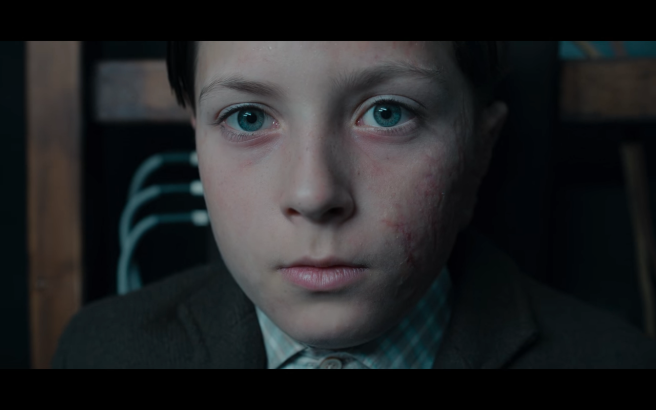








Season 1 Character Board

Season 2 Characters and Connections


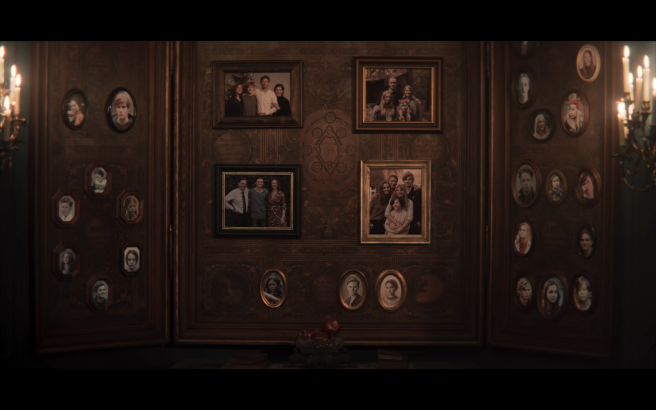
Adam’s Family Tree Board: All individual photos are young versions of the characters. Left Panel: Hannah, Jonas; Doris; Egon, Claudia; Regina, Aleksander/Boris; Bartosz. Center Panel: Hannah, Jonas, Michael/Mikkel, Ines; Peter, Charlotte, Franziska, Elisabeth; Aleksander,Bartosz, Regina; Ulrich, Magnus, Martha, Katharina, Mikkel; Solja, Noah, Agnes. Right Panel: Upper left??, Charlotte; Peter; Franziska, Elizabeth; Tronta, Jana, Mads; Katharina, Ulrich; Magnus, Martha; Mikkel.
Jonas Kahnwald, Time Traveler. Also known as the Stranger. Originates in 2019-20, but appears in every time period, except possibly 1953? Son of Michael Kahnwald/Mikkel Nielsen and Hannah (Krüger) Kahnwald. Star-crossed lover of Martha Nielsen. Former best friend of Bartosz Tiedemann.

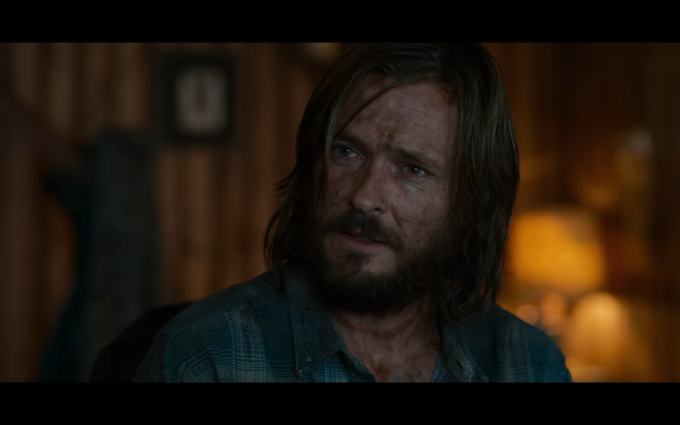
Hannah (Krüger) Kahnwald, 1986-87, 2019-2020. Time Traveler. Massage therapist. Married to Mikkel/Michael. Jonas’ mother. Has an extramarital affair with Ulrich Nielsen. Blackmails Aleksander Tiedemann.

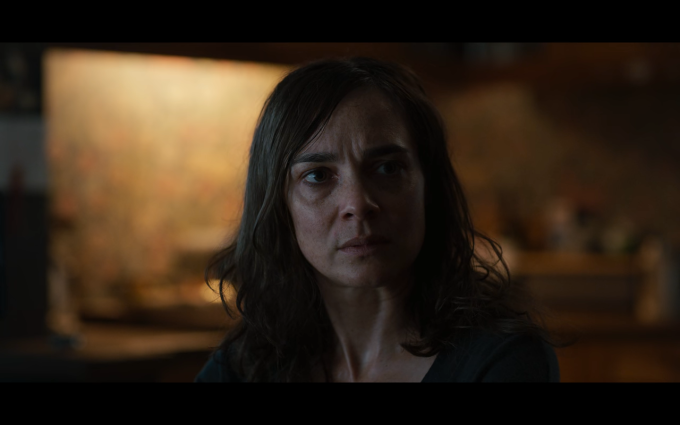
Daniel Kahnwald, 1953-54. Chief of Winden police. Ingrid’s father. Michael’s adoptive grandfather.
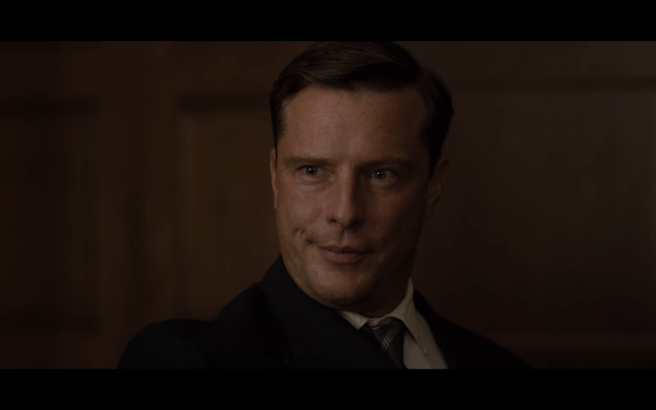
Ines Kahnwald, 1953, 1986-87, 2019. Mikkel/Michael’s adoptive mother. Daniel’s daughter. Jonas’ grandmother. Hospital nurse in the 80s. Adopts Mikkel after she gets to know him during his hospital stay when he arrives in 1986. Eventually figures out that he really is from the future. Encourages him to forget about the life he had before she adopted him. Is estranged from Hannah and Jonas by November 2019, for unknown reasons. Tells both Mikkel and Jonas to leave the past in the past and the future in the future.

Bartosz Tiedemann, 2019-20. Time Traveler and follower of Noah. Son of Regina and Aleksander Tiedemann. Grandson of Claudia Tiedemann. Former boyfriend of Martha and former best friend of Jonas.

Regina Tiedemann, 1986-87, 2019-20. Wife of Aleksander and mother of Bartosz. Daughter of Claudia. Formerly owned a hotel which was forced to close after the disappearances started. Dying of cancer. Currently on hormone therapy, but may have to switch back to chemo.


Aleksander Tiedemann, 2019-20, director of the nuclear power plant. Regina’s husband and Bartosz’ father. Arrived in Winden in 1986 with a gun and two passports under different names, while being hunted by dogs and police. Told Regina his name was Aleksander Köhler. The other passport said Boris Niewald. Has helped keep the yellow barrels of radioactive waste hidden since 1986. Dies on the day of the apocalypse, 6/27/20.


Claudia Tiedemann, 1953-54, 1986-87, 2019-20. Time Traveler. Regina’s mother. Egon and Doris’ daughter. Bartosz’ grandmother. Director of the power plant in 1986. Her older version is known as the White Devil by the followers of Adam. Developed the process that stabilized the God Particle into a time travel portal. Fighting a time war against Adam. Has heterochromia (one blue eye, one brown eye).
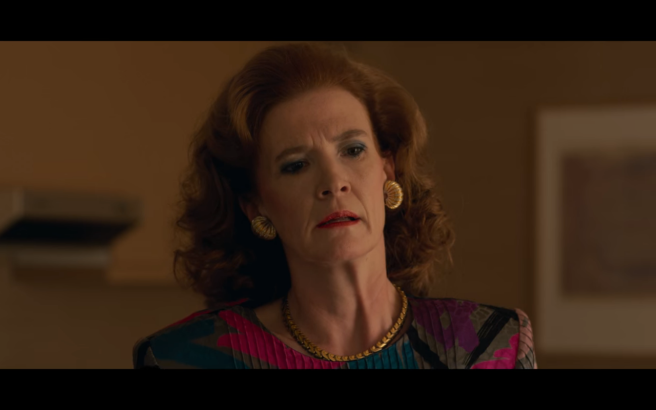

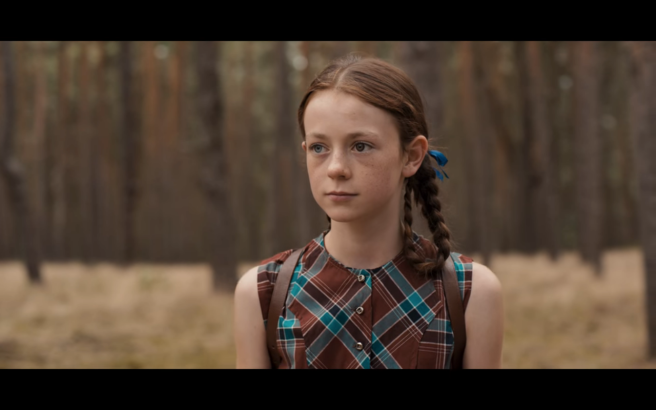
Egon Tiedemann, 1953, 1986-87. Police officer. Husband of Doris. Father of Claudia. Grandfather of Regina. Arrested Ulrich for murder and kidnapping in 1953 and rape in 1986. Was an alcoholic in 1986. Was in an unhappy marriage in 1953. Tries to do the right thing, often fails. In 1987, retired and dying of cancer.
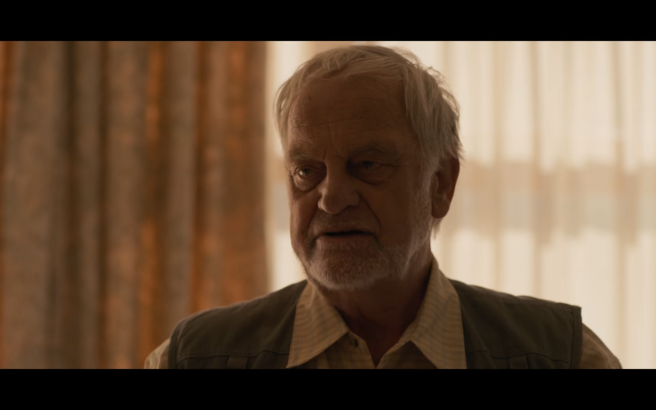

Doris Tiedemann, 1953-54. Wife of Egon, mother of Claudia, Agnes’ lover and landlady. Starts affair with Agnes while still married to Egon.
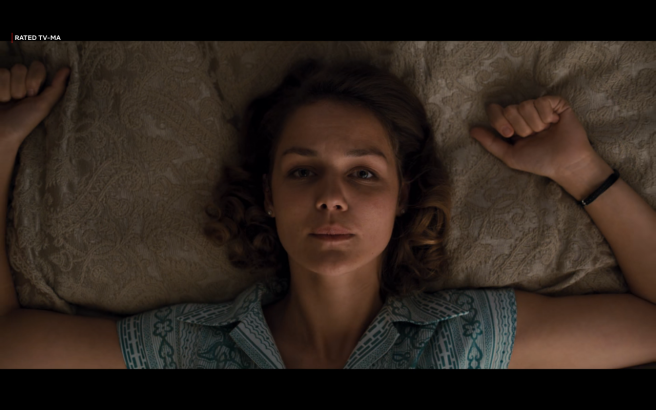
Gretchen the Dog Tiedemann, 1953, 1986-87. Time Traveler. Claudia’s childhood dog. Older, White Devil Claudia brings Gretchen to the future to help prove to Adult Claudia that time travel is real. Recognizes every version of Claudia as if she hasn’t aged, proving that the time travelers aren’t fundamentally changed by the experience, or at least Claudia hasn’t been.

Katharina Nielsen, 1986-87, 2019-20. School principal. Ulrich’s wife. Mother of Magnus, Martha and Mikkel. No information on her family background, except that her mother was violently abusive, frequently leaving Katharina with bruises. Obsessed with using Ulrich’s files to continue investigating the disappearances.

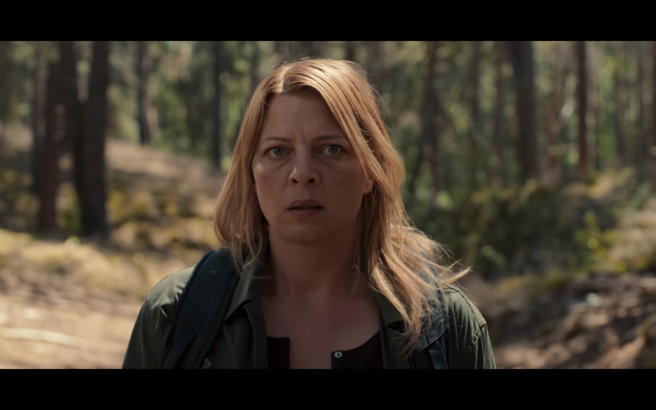
Ulrich Nielsen, 1953, 1986-87, 2019. Time Traveler. Police officer. Katharina’s husband. Father of Magnus, Martha and Mikkel. Son of Tronte and Jana. Grandson of Agnes. Has extramarital affair with Hannah Kahnwald in 2019. Becomes obsessed with finding Mikkel and convinced that the 1986 version of Helge Doppler is responsible for the disappearances. Arrested in 1953 for allegedly kidnapping Helge and murdering 2 boys, after he tried to kill child Helge and locked him in the bunker. Committed to a mental institution in 1953. Still there in 1987. It’s not clear if he ever had an ongoing mental illness other than the trauma of losing Mikkel, and then everything, or if the “illness” was a combination of the side effects of the medications of the mid 20th century and his strong reactions to anything related to his real life.
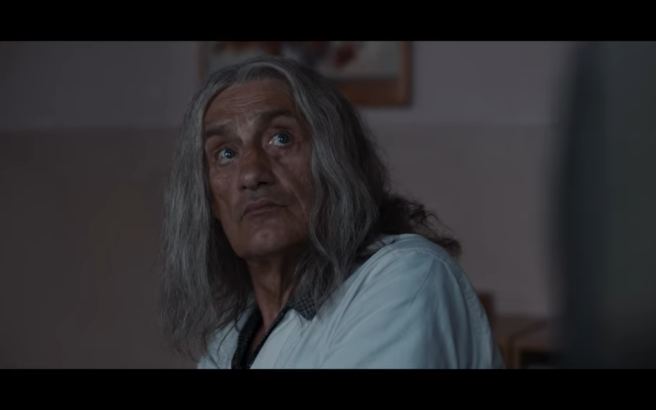

Magnus Nielsen, 2019-20. Son of Katharina and Ulrich. Brother to Martha and Mikkel. Oldest child. Franziska Doppler’s boyfriend. Suspicious of Franziska, causing arguments between them.

Martha Nielsen, 2019-20. Ariadne. In love with Jonas. Bartosz’ former girlfriend. Daughter of Katharina and Ulrich. Sister of Magnus and Mikkel. Middle child. Dies on the day of the apocalypse, 6/27/20.
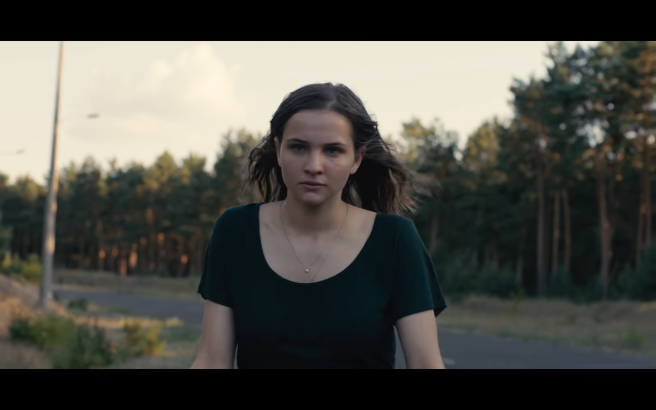
Mikkel Nielsen/ Michael Kahnwald, 1986-87, 2019. Time Traveler. Artist. Magician. Interest in Hermeticism. Youngest son of Katharina and Ulrich Nielsen. Brother of Martha and Magnus. Adopted in 1986 by Ines Kahnwald and raised as Michael Kahnwald. Married to Hannah (Krüger) Kahnwald. Jonas’ father. Hanged himself on 6/21/19.
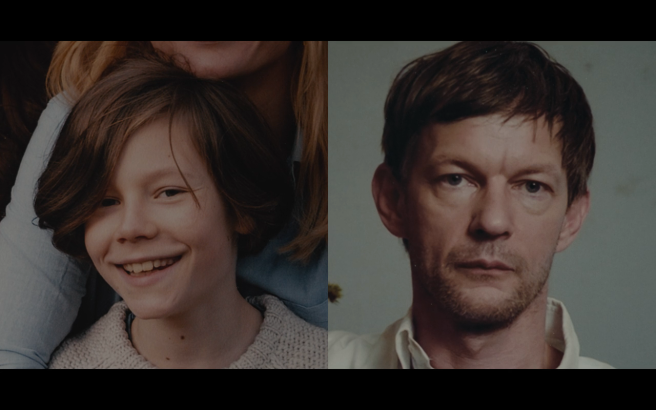
Tronte Nielsen, 1953-54, 1986-87, 2019-20. Journalist. Husband of Jana, father of Ulrich and Mads, son of Agnes and lover of Claudia. He and Peter Doppler placed of Mads body in the woods in 2019 on the night of Mikkel’s disappearance, based on Claudia’s instructions. They continued to be involved in the events of Cycle 1 during November 2019 in other ways, guided by the triqueta log, which Claudia gave them.

Agnes Nielsen, 1953-54. Tronte’s mother, Doris’ lover, Noah’s sister, Ulrich’s grandmother. Renting rooms at the Tiedemann home. Was working with Claudia, until Claudia ordered Agnes to betray her. According to Tronte, before they moved to Winden she was sad and he was living in an orphanage.

Peter Doppler, 2019-20. Therapist. Charlotte’s husband, father to Franziska and Elisabeth. Son of Helge Doppler. Mother unknown. Moved to Winden in 1987. Frequently visited Benni in the past, but promised Charlotte he’d stop and has kept his promise. Along with Tronte, helped Claudia in Cycle 1, guided by the triqueta log.
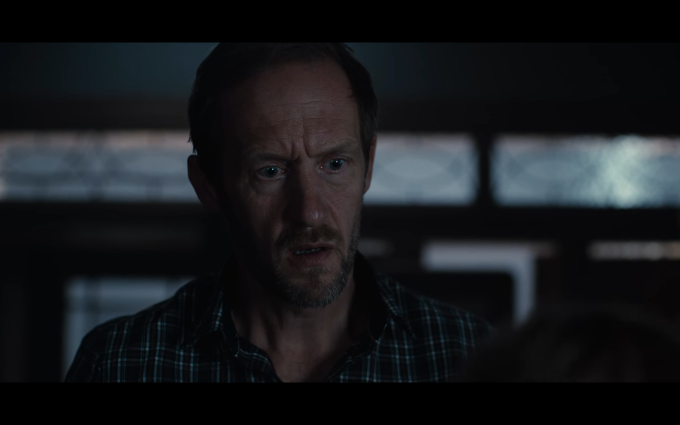
Charlotte Doppler, 2019-20. Police chief. Wife of Peter. Mother of Franziska and Elisabeth. Raised by her grandfather/guardian, HG Tannhaus, after her parents died when she was very young. The identity of her parents hasn’t been revealed to her or us. She and Peter are running an in depth investigation of the Winden disappearances, which includes the knowledge of time travel, out of the bunker, unbeknownst to the rest of the police force or Clausen.

Franziska Doppler, 2019-20. Daughter of Charlotte and Peter. Sister of Elisabeth. Magnus’ girlfriend. Sells hormone therapy prescriptions to Benni when Benni can’t get them from Peter anymore.

Elisabeth Doppler, 2019-20, 2053. Leader of the apocalypse survivors in 2053. Daughter of Charlotte and Peter. Sister of Franziska. Briefly taken by Noah in 2019 and returned with a pocket watch of Charlotte’s. Deaf, communicates using sign language. Silja is her interpreter in 2053. Yasin, one of the missing/dead boys, was her friend and crush in 2019. Strict enforcer of the law in 2053, but relents and doesn’t kill Jonas after he trespasses into the dead zone. Does kill the French delegation.

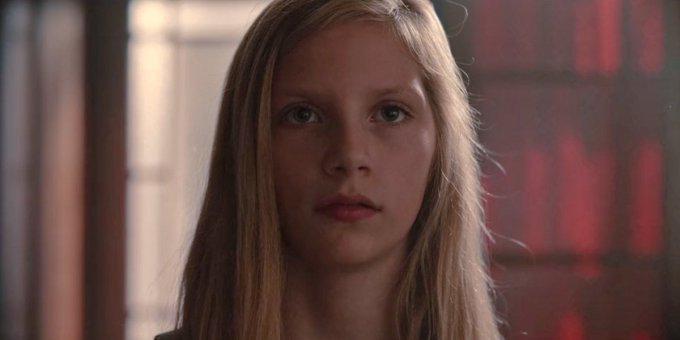
Helge Doppler, 1953, 1986-87, 2019. Time Traveler. Noah’s assistant in the development of the evil chair time travel device. Father was Bernd, the builder and first director of the Winden Nuclear Power Plant. Mother was Greta, strict disciplinarian who had a thing for Father Noah and thought Bernd might not be Helge’s biological father. Father of Peter. No information on when he fathered Peter or with who. He didn’t raise Peter. Was in an institution in 1987. Was in a nursing home with dementia in 2019. Kidnapped Mads, Eric, Yasin and maybe more for Noah to experiment on and kill, then he disposed of the bodies. The 2019 version died in a car accident in 1987 while trying to stop his younger self from helping Noah.
It’s possible that his “dementia” is just a misunderstanding of his ramblings about time and time travel.
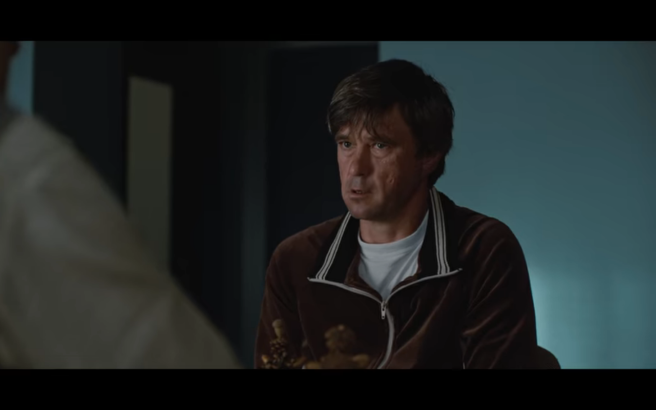

Greta Doppler, 1953-54. Helge’s mother. Bernd’s wife. Strict disciplinarian. Follower of Noah.

HG Tannhaus (with Teen Charlotte), 1953, 1986. The Claockmaker. Time machine inventor, author of the guide to time travel “A Journey Through Time”, owner of the clock shop. Charlotte’s guardian/adoptive grandfather. Had some connection to Sic Mundus which hasn’t been revealed. Studied Hermeticism. Exchanged information with Claudia and Jonas.

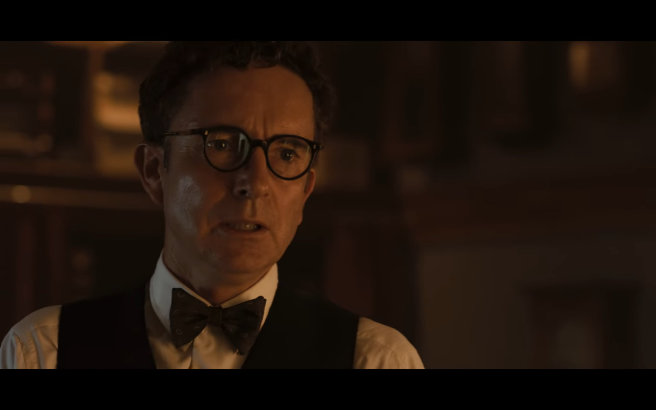
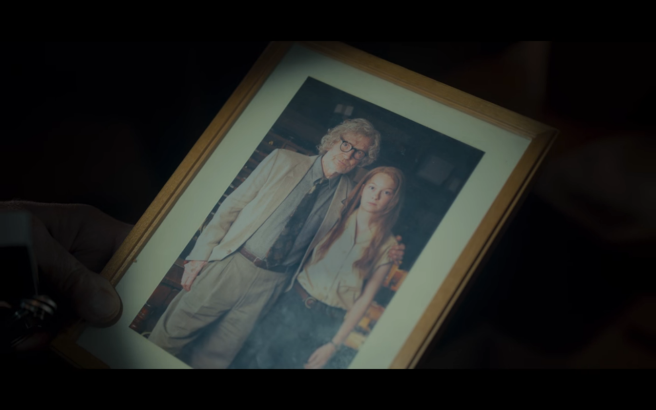
Noah, 1921, 1953-4, 1986-87, 2019-20. Time Traveler. Taken in when young and named by Adam. Pastor of the Sic Mundus cover church, who doesn’t believe in God, follower of the Prophecy who also seems to have doubts about that. Does Adam’s dirty work, from murder to recruitment. In Cycle 1, Helge did his dirty work. Mentored by Adam. Mentors the younger version of himself. The older version barely seems to age. Hasn’t been given a last name, though his sister Agnes uses Nielsen.
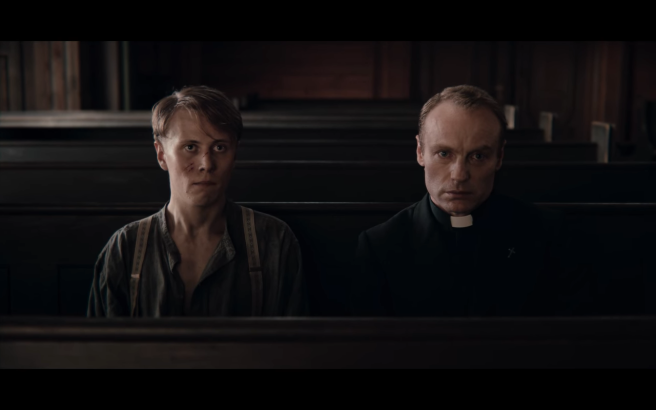
Silja, 2052-53. The girl from the future. Elisabeth’s interpreter. The first person Jonas met when he arrived in 2052 after touching fingers with young Helge through the rift in time.

Clausen, 2020. Head of the “task force” meant to start a new investigation into the missing persons cases in Winden. Sent by the national government. Believes in the power of careful observation and catching people off guard. Seems to assume that everyone is guilty. Despite the title of “task force”, he’s the only person sent to Winden. He insists on working closely with Charlotte, staring her directly in the face.
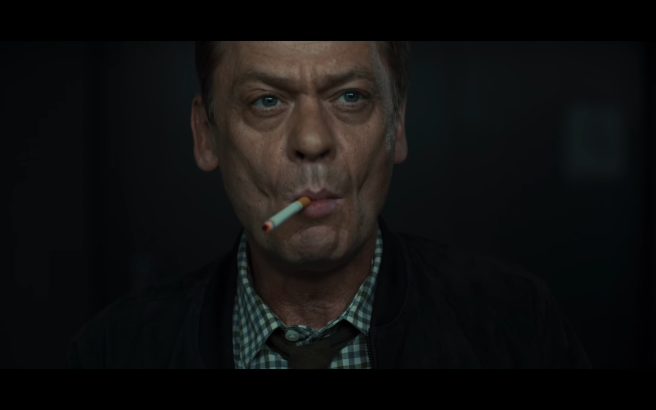
Torben Wöller, 2020. Police officer. Benni’s brother. Tells her to call their mom, so she’s still living, though unnamed. Lost an eye before the series began, but we haven’t been told how. Dedicated and conscientious police officer. Also works for Aleksander on the side. Responsible for the truck with the radioactive yellow barrels while they couldn’t be stored at the power plant. Dies on the day of the apocalypse, 6/27/20.

Benni/Bernadette (Wöller?), 2020. Trans sex worker. Torben’s sibling. Object of Peter Doppler’s desire. Watches the truck with the yellow barrels for Torben. Buys hormone therapy prescriptions from Franziska. I have a hunch that she and Torben are more important than they appear, especially since they’ve had custody of the truck for months. That’s a lot of exposure to whatever’s in the barrels.

Justyna Jankowksi, 2020. Police officer. Dies on the day of the apocalypse, 6/27/20.

Jürgen Obendorf, 2020. Maintenance worker at the nuclear power plant. Erik Obendorf’s father and drug dealing partner.

Adam, 1921? Time Traveler. Leader of Sic Mundus, fanatical megalomaniac. The Devil, the Demiurge, the Bond villain. Or maybe he’s the biblical Adam, God’s first and most perfect human creation, who’s been led astray by an evil woman (Claudia?), and is now trying to restore mankind to his proper place in the universe. Only time will tell.
Why does Adam have such extensive scarring when none of the other frequent time travelers do? Noah is ageless and Claudia aged beautifully. After his first trip in the chair, Helge seems to have traveled without damage.
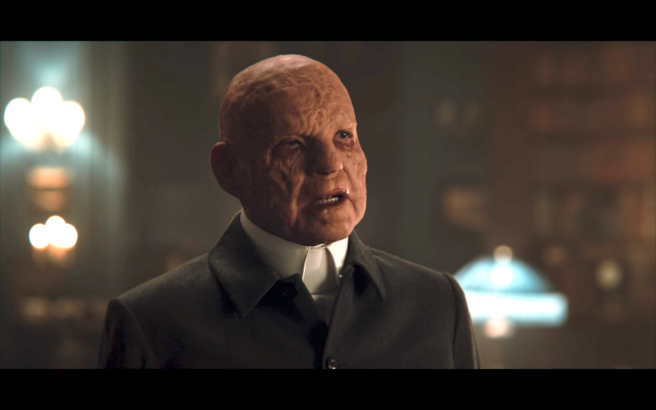
The Nameless Tattooed Man, 1921. Helped create the passage. Lost faith in the Prophecy, but was able to keep his sense of humor and emotional distance about the situation. Was attacked and potentially killed by Young Noah, on Adam’s and Adult Noah’s orders, likely as an initiation rite for Young Noah. Accepted his fate. Had some prior connection to Noah that made him an interesting choice for the job. Has the same tattoo as Noah, but on his chest and abdomen, instead of his back. This also suggests a connection to Noah, and to the several episode titles referring to beginnings and ends. The end credits call him “Man in Cave“. We’re probably supposed to think he’s Bartosz. I don’t believe it. I think he’s a different founder of Sic Mundus, but probably a close relation of Bartosz. He could be Noah’s brother. This season is already big on sibling relationships, and Genesis has important murderous siblings. As in the story of Joseph, they don’t always die. But some do, such as amongst Adam and Eve’s sons.
Honestly, can you imagine Bartosz digging in the tunnels, alone with just one other man, without complaining about the hard labor he was doing?


Images courtesy of Netflix.


2 thoughts on “Dark Season 2 Episode 3: Ghosts Recap”
Comments are closed.